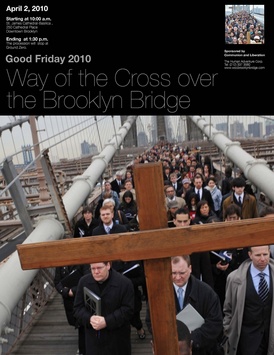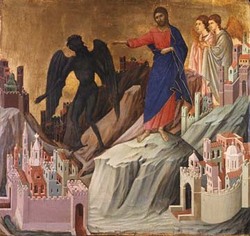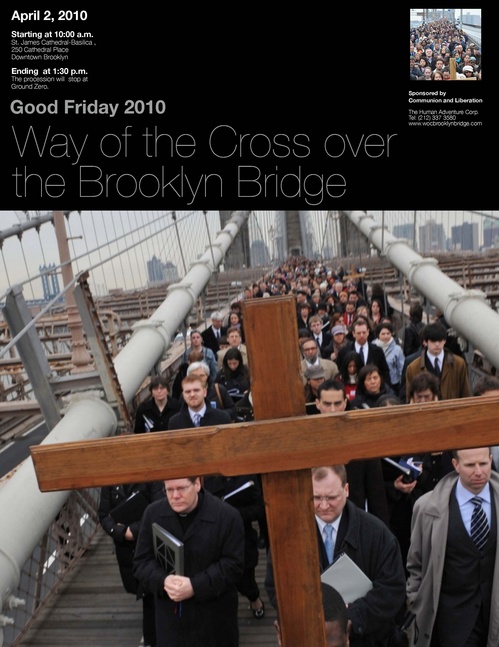In the School of Community Sunday evening –the weekly catechetical meeting for members & friends of Communion & Liberation– we discussed Traces‘ April editorial, “Greater than Sin.” The editorial is an attempt to put words to an experience and to remind ourselves of the workings of grace and sin.
Tag: Communion and Liberation
Attacking the Pope (and the Catholic faith)…an annual sport — Communion and Liberation responds
No Catholic should be surprised that there is filth in the
Church for Our Lord Himself told us that this would be so in the parable of the
weeds among the wheat (Matthew 13:24-30). AND it’s no surprise that the
Church is full of sinners, sinners who commit grave sin. And yes, some
who claim to follow Christ commit evil and everything possible must be done to
stem the evil and to make amends for that pain generated by that evil.
Furthermore,
no Catholic should be surprised that the Faith should once again be attacked
during Easter because this is an annual event. However, this year’s
annual Easter attack on the Faith has taken the form of one upon the person of
the Pope, Benedict XVI, himself.
What truly saddens me, however, is that there
are many within the Church herself, those who should know better, that are once
again attempting to create a Christianity without Christ. But if we
forget Christ, if we do away with the wholly different measure that He
introduces into the world now, through the Church, then we no longer have the
terms on which to judge the Church.
Good Friday Way of the Cross over the Brooklyn Bridge connected with closeness & prayers of Pope Benedict
The Secretariat of State of the Holy See has asked me
to convey the following message:
and the assurance of closeness in prayer to all attending the Good Friday
Stations of the Cross organized by Communion and Liberation in New York City
and in the other cities throughout the United States. It is his hope that by
accompanying the Redeemer along the path leading to calvary they will draw ever
closer to Him in His loving obedience to the Father’s Will and His redemptive
solidarity with suffering humanity, and be led to deeper conversion, more fervent
faith and generous commitment to the spread of God’s kingdom of reconciliation,
justice and peace. Commending all present to the intercession of Our Lady of
Sorrows, the Holy Father cordially imparts his apostolic blessing as a pledge
of Easter joy and hope.
good wishes, I remain
Nuncio
Luigi Giussani, led by Christ –recalls Archbishop Prendergast for Communion & Liberation-Canada
Around the world in past 2 weeks Communion and Liberation’s Schools of Community have been praying for the good of Communion and Liberation while remembering the fifth anniversary of death of Monsignor Luigi Giussani. In the Archdiocese of Ottawa last Monday (February 22) Archbishop Terrence Prendergast, SJ celebrated Mass for CL-Ottawa and here is a portion of his homily. One of the touching points in His Grace’s homily is the phrase, “to follow Christ.” The same phrase I used for my coat of arms; see above.
Five years ago today, Don Luigi Giussani, the founder of a movement that came to be known as Communion and Liberation was called home to God by the Lord Jesus Christ. Cardinal Ratzinger, our present pope was sent by Pope John Paul II as his legate to the funeral ceremony in Milan. On that occasion, he testified to the way in which Don Giussani had allowed himself to be led by Christ in a loving relationship from his earliest years, just as Peter had from the moment of his first encounter with Jesus: “This love affair with Christ, this love story which is the whole of his life, was however far from every superficial enthusiasm, from every vague romanticism. Really seeing Christ, he knew that to encounter Christ means to follow Christ. This encounter is a road, a journey, a journey that passes also-as we heard in the psalm-through the ‘valley of darkness.’ In the Gospel, we heard of the last darkness of Christ’s suffering, of the apparent absence of God, when the world’s Sun was eclipsed. He knew that to follow is to pass through a ‘valley of darkness,’ to take the way of the cross, and to live all
the same in true joy.”
St. Francis Xavier expressed this in a lovely poem, “O Deus, Ego Amo Te,” translated touchingly by his brother Jesuit, the poet Gerard Manley Hopkins:
O GOD, I love thee, I love thee-
Not out of hope of heaven for me
Nor fearing not to love and be
In the everlasting burning.
Thou, thou, my Jesus, after me
Didst reach thine arms out dying,
For my sake sufferedst nails, and lance,
Mocked and marred countenance,
Sorrows passing number,
Sweat and care and cumber,
Yea and death, and this for me,
And thou couldst see me sinning:
Then I, why should not I love thee,
Jesu, so much in love with me?
Not for heaven’s sake;
not to be out of hell by loving thee;
Not for any gains I see;
But just the way that thou didst me
I do love and I will love thee:
What must I love thee, Lord, for then?
For being my king and God. Amen.
Is a Strong Priesthood In the World’s Future? asks Massimo Camisasca
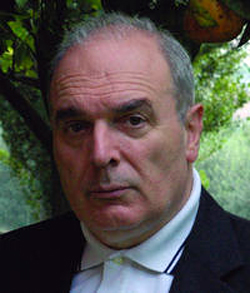 On February 26th Zenit published an article by Father Massimo Camisasca looking at what he considers to be the pillars (prayer & Liturgy) of priestly reform in the Catholic Church. Reading a bit of Church history recently there’s been a lot to consider when thinking about the state of the Catholic Church viz. the rise of Portestantism and then the decline of the Christian religion in some parts of the
On February 26th Zenit published an article by Father Massimo Camisasca looking at what he considers to be the pillars (prayer & Liturgy) of priestly reform in the Catholic Church. Reading a bit of Church history recently there’s been a lot to consider when thinking about the state of the Catholic Church viz. the rise of Portestantism and then the decline of the Christian religion in some parts of the
Statistical data of the past 30 years reveals an increase of 5% more diocesan priests worldwide, compared with an increase of 48% more baptized persons.
This alone could explain the question in the title of my latest book, “Padre ci saranno ancora sacerdoti nel futuro della Chiesa?” (Father, Will There Still Be Priests in the Future of the Church?) — a theme that underlies the entire text.
However, even more than the number of priests, the Church is interested in the truth of their experience. For reasons connected with my work as superior of a fraternity of missionaries, I travel throughout the world and am in contact with the most diverse realities. And, meeting with priests of different regions, I note that many of them experience difficulties not so much of an ideological type as of an emotional order.
Why is it that today the priestly life — which has made thousands of men happy and contributed enormously to the spiritual growth of humanity — is going through such a profound qualitative crisis?
My [Italian-language] book stems from this question. It is an attempt to rethink the life of a priest from its roots.
Rebirth
The regeneration of priestly life is one of the conditions for the new flowering of Christianity in
I have attempted to trace the path for a rebirth returning to the fundamentals of the priesthood. I find one of those fundamentals in prayer.
Today many priests lose themselves in action, in the infinite number of activities and preoccupations that entrap them. For the action of each one of us to always be a source of nourishment, it must be constantly redirected to our relationship with Christ. And the place of our relationship with Christ is prayer, inseparable from silence.
Silence, prayer, reflection and study are the answer to one of the evils that afflict the figure of the priest: activism, which remains on the surface of things and absorbs the time of our energies and our feelings. Instead, action that stems from charity introduces us in the work of God, who precedes and exceeds us.
Liturgy
Another pillar of the renewal of priestly life is the liturgy. I say this following the teaching of the Pope. I am not ruled by the desire to accommodate myself to a current, but by a profound conviction that is born from experience.
If the priest does not rediscover the true meaning of the liturgy in his life, he cannot find himself.
Surmounting the process of trivialization, which we have witnesses in the last 30 years, it is necessary to return to that “fons et origo” that the Second Vatican Council identifies in the liturgy.
When it is faithful to the one who instituted it, when it is lived in all its rigorous totality and is attentive to the tradition of the Church, the liturgy is the place of education to communion.
The protagonist of the liturgy is Christ. By living the liturgy, we can enter into the life of God, and only thus can we priests be an effective company of men.
In the third place, the emotional question is central in the life of a priest. Loneliness is the other great evil that today afflicts thousands of priests.
Only by discovering himself a son can the priest be a father.
Friendship is a positive experience in a person’s emotional life. In the Church there is still much fear of friendship. Pathologies are not channeled if one is not helped to develop a healthy life.
Unhealthy and negative friendships, which because of this are not proper friendships, must not close us off from the essential value of these bonds of preference that open us to the love of others and help us to understand who God is.
Luigi Giussani: the 5th anniversary of death
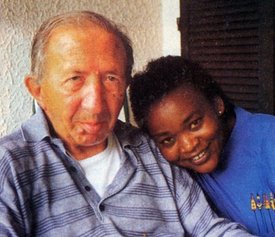 Five years ago today Monsignor Luigi Giussani died after suffering the effects of Parkinson’s Disease. I continue to miss his voice and witness to faith we profess in Christ.
Five years ago today Monsignor Luigi Giussani died after suffering the effects of Parkinson’s Disease. I continue to miss his voice and witness to faith we profess in Christ.
Archbishop Dolan prays for Giussani, thanks Communion & Liberation, gives us the logic of Lent
Tomorrow is the 5th anniversary of death of the great priest and founder of Communion & Liberation, Monsignor Luigi Giussani. More on that later. However, the NY community of Communion & Liberation gathered at Saint Patrick’s Cathedral for the Sacrifice of the Mass celebrated by the Archbishop, Timothy M. Dolan. Among those in the sanctuary were Bishop William McCormack (retired auxiliary bishop of NY celebrating 51 years a priest today) and Bishop Gerald Walsh (NY auxiliary bishop and rector of Saint Joseph’s Seminary), Msgr. Lorenzo Albacete, Carmelite Father Eugene and Father Daniel O’Reilly with the seminarians from Dunwoodie and the collegians from St John Neumann Seminary Residence.
Way of the Cross, Good Friday, 2010 –NY Communion & Liberation
Man has an inexhaustible desire for the Infinite
Why does faith still have any chance at all?… Because
it corresponds to the nature of man…. Man possesses an inextinguishable
aspiration, full of nostalgia, for an infinite. None of the attempted answers
will do; only the God who himself became finite in order to tear open our
finitude and lead us into the wide spaces of his infinity, only he corresponds
to the question of our being. That is why, even today, Christian faith will
come to seek out man again.
with our exhaustion, with our propensity for melancholy, with this strange
masochism that life tends to favor nowadays, or with this indifference and
cynicism that life produces nowadays as a way of avoiding the suffering of an
excessive and unwanted fatigue, how could we ever accept ourselves and others
in the name of a discourse? We cannot sustain love for ourselves unless Christ
is a presence, as a mother is a presence for her child. Unless Christ is a
presence now – now! – I cannot love myself now and I cannot love you now.
Giussani
New York Encounter 2010
Each year Communion & Liberation gathers for the
National Diaconia over the ML King weekend. In addition to prayer and
Mass, there are the conferences and opportunity to meet friends and focus on
the work of living the path proposed by Msgr. Giussani. All the events have the purpose of meeting Christ, working on the gift of holiness and deepening our companionship. No CL event is truly a
CL event without a cultural component, hence, there number of public events
will accompany this weekend. This is what we call “New York
Encounter,” the ‘Rimini Meeting’s little brother’. The proposed program is NY Encounter 2010.pdf; please consider the possibility of a weekend of culture and beauty in
NYC.
